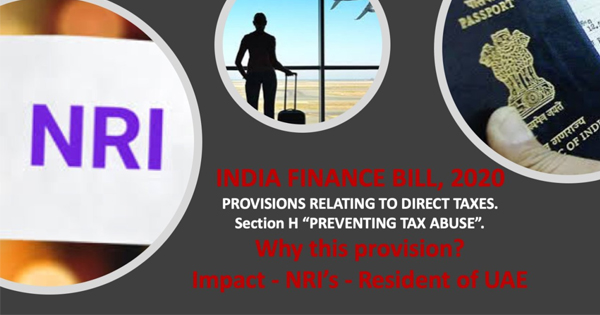
Let’s understand why this section itself in included in the Finance Bill. Roots of this provision seems to be originated from the OECD (Organisation for Economic Co-operation and Development) Inclusive Framework on Base Erosion and Profit Shifting (BEPS). Very specific Action point 6 i.e. Prevention of tax treaty abuse.
Tax abuse, in easy terms referred as an attempt by a person (legal & natural) to indirectly access the benefits of a tax agreement between two jurisdictions without being a resident of one of those jurisdictions. In these cases, taxpayers engaged abuse strategies undermine tax sovereignty by claiming treaty benefits in situations where these benefits were not intended to be granted, thereby depriving jurisdictions of tax revenues.
BEPS framework action 6 objective is to eliminate double taxation with respect to taxes on income and on capital without creating opportunities for non-taxation or reduced taxation through tax evasion or avoidance.
In the India Finance Bill 2020, the stated provision (i.e. Preventing Tax Abuse) is targeting taxable person, where Individuals, who are actually carrying out substantial economic activities from India, manage their period of stay in India, so as to remain a non-resident in perpetuity and not be required to declare their global income in India. This arrangement is typically employed by high net worth individuals (HNWI) to avoid paying taxes to any country/ jurisdiction on income they earn.
Instances where NRI's - Resident in UAE should not be worried.
1. Are you resident of UAE, with stamped residency visa.
2. Are you resident in the UAE with minimum 183 days of stay in UAE (UAE - Ministry of Finance, eligibility to obtain Tax Domicile Certificate).
If both the conditions are satisfied (i.e. Yes), then with all probability you are TAX Resident of UAE, and subject to tax provision and law applicable in UAE, in relation to income earned in UAE. Individual who is satisfying both the conditions, may not be subject to taxes in India, in relation to income earned in UAE (this is aligned with provisions of DTAA- Double Taxation Avoidance Agreement). Subject to satisfaction of revised condition of your stay in India i.e. should not be in India for more than 120 days.
Instances where NRI's - Resident in UAE - should be CONCERNED...
1. Are you resident of UAE, with stamped residency visa.
2. Are you resident in the UAE with minimum 183 days of stay in UAE (UAE - Ministry of Finance, eligibility to obtain Tax Domicile Certificate).
If any of the condition is not satisfied, then there may be a probability, that you are not a TAX Resident of UAE & your UAE income may be subject to taxes in India.
Sources used:
Disclaimer : Content posted is for informational & knowledge sharing purposes only, and is not intended to be a substitute for professional advice related to tax, finance or accounting. Each article/view/comment posted by third party readers/subscribers of our website on topics of tax and accounting is their personal opinion and due professional care should be taken by you before you act after reading the contents of that article/post. No warranty whatsoever is made that any of the articles are accurate. and is not intended to provide, and should not be relied on for tax or accounting advice.